Choose one of eight woodland walks with Go Jauntly as part of an ambitious cross-disciplinary research project
A £10m, large-scale programme is afoot which aims to understand benefits of trees to the environment and to people. Environmental scientists, social scientists, economists, and arts and humanities researchers are collaborating in ambitious research projects.
As part of one of the programme’s projects, Connected Treescapes, the walking app Go Jauntly and their Treefest are inviting people who live near the National Forest to walk one of six tree-filled walks, answering some questions before and after. Do this before the end of October and stand to win prizes too!
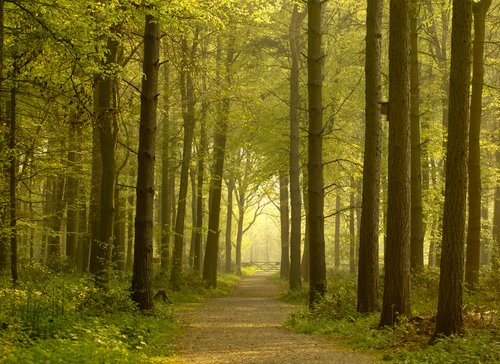
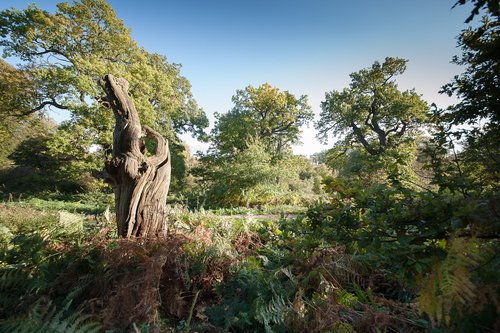
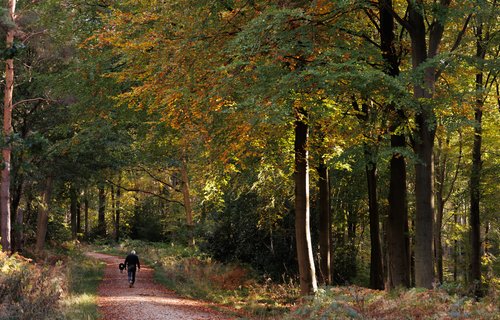
Here’s Professor Miles Richardson with more about the Connected Treescapes project:
How did the project come about and why?
We know that being connected with nature in general is good for us, but there’s still more research to be done – and that includes understanding more about the benefits of trees. This is especially important with the plans to plant millions of trees by 2050.
The Connected Treescapes project will explore the value of trees, including the benefits for people’s wellbeing, cultural heritage and wildlife. We can then use this data to create tools and knowledge to inform the design of future treescapes, that are best suited to climate warming and provide the best benefits for future generations – and the rest of the natural world.
The Treefest part focusses on how various types of trees, woodlands and forests benefit wellbeing.
“We can use this data to inform the design of future treescapes, that are best suited to climate warming and provide the best benefits for future generations”
What is the most enjoyable part of your work?
Like my other projects on the relationship between people and nature, Connected Treescapes aims to make a difference. Focussing on a critical global issue naturally feels worthwhile, but the nature of that work is enjoyable too – I find a great deal of hope working with people working towards a more sustainable future.
What are your earliest childhood memories involving trees?
I was fortunate to grow up with a garden that had several trees, one being a Prunus with deep coppery red leaves. An early memory is being told at school that trees don’t have red leaves. Play often revolved around the trees in the garden and also the small woodland at the end of the road. I spent many, many hours in the company of trees.
Do you have a favourite individual tree?
Several over the years, from the spindly ash tree that stood on the furthest horizon visible from my childhood home, to a part fallen oak, that snaked like serpent through a hidden corner of ancient woodland nearby. Now, it’s perhaps the 100-year-old walnut tree we’re fortunate to have in our garden. It provides a place to sit, shade in the summer and enough walnuts to send the squirrels crazy every other year!
Tell us about a Go Jauntly Treefest walk you’ve been on?
I’ve planned two of the walks and checked out a third, the Dunstall walk – which I really enjoyed. Much of it is familiar, a location I discovered in 2011 and returned to many times. It’s close to where people live, but it’s quiet and quite varied with pockets of older woodland and new plantations. It is also on the Needwood plateau, and even that modest height allows some views over the distant Trent valley.
There’s also history, the area was part of the ancient woodland and wood pasture of the Needwood Forest, largely lost at the end of the 18th century. So, a great location to visit to help inform future woodlands and forests in the UK.
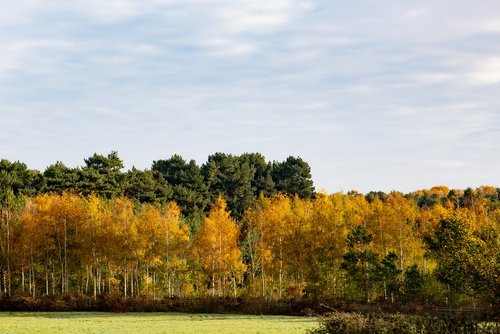
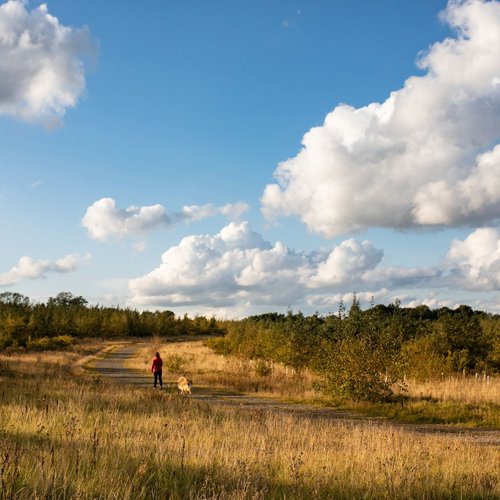
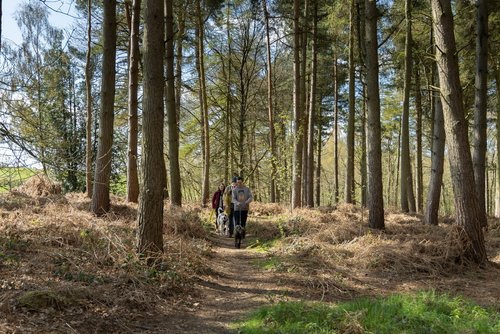
How can people get involved in Treefest?
Easily! The project involves eight walks accessed via the walking app Go Jauntly. Through walking the walks those that take part will provide data which will allow us to calculate how various types of trees, woodlands and forests benefit wellbeing.
If you live near the National Forest, download the Go Jauntly app on your iPhone or android device and head out to one of our research walks. Answer a few simple questions before and after your walk. Researchers will then study this data to see how various treescapes relate to wellbeing.
- Dunstall Treefest Walk
- Robin Wood Treefest Walk
- Jackson’s Bank Treefest Walk
- Calke Treefest Walk
- Beacon Hill Treefest Walk
- Jubilee Treefest Walk
- Rosliston Treefest Walk
- Anslow Treefest Walk
In addition to making your own contribution to the future treescapes, as a huge thanks for taking the time to participate in this research study, we’ll enter all those who take part in the walks by 23:59 on 31st October 2022 into a prize draw to win one of twenty £100 gift vouchers.
Thanks so much Professor Miles! If you want to learn more, or find a research walk to embark on near the National Forest, click here.

Miles Richardson
Miles Richardson is a professor of Human Factors and Nature Connectedness and founded the Nature Connectedness Research Group at the University of Derby. The focus of this research is on understanding and improving connection with nature, given the wellbeing and environmental benefits. The group works closely with Natural England and its work has been adopted by many organisations, including the National Trust, RSPB and 2021 Mental Health Awareness week. The group won the institutional award for research impact at the 2021 Green Gown Awards. Miles is also a lead author on ‘Intergovernmental Science-Policy Platform on Biodiversity and Ecosystem Services’ (IPBES) global transformative change assessment.